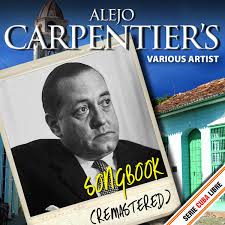Professor Rodriguez says that the mystery of the enduring will never finish, when referring to those predicting the end of radio, “listening to a good radio program is like reading a good book, a magical process connecting the ear to the brain. That’s the greatest contribution to the individual culture of the listener, a great education that good radio programs always leave behind. For that reason, it is so crucial to produce quality radio, taking into account the technological development of the 21st century. The radio is my best classroom.”
Beyond discussions of the term “educational radio”, the key is the influence of radio on people, and how to apply its advantages to educate them. Something more important: “Radio exerts an influence within the human being, and in their complexities, it leaves no other choice” added prestigious professor.
According to Roberto Rodriguez, he fell in love with the radio due to the sound effects of the horses he used to listen to in the radio aventures “Los Tres Villalobos” (The Three Villalobos). Can you understand that, he said? It is related to the richness radio has to love and trap the listeners through its fantasies and stories. I have no doubt that the courage and cunning of those characters must have been well accepted by some of the teenagers who use to listen to those radio adventures.
Such ideas show that it not only educates through teaching programs on language, participation, and vocational training, among others, but any kind of program can, in an attractive and moving manner, achieve educational or any other aims, using the tools of the media.
Roberto labels as educational programs “all kind of radio program that leave an artistic message and project into a dimension of the values that our society needs to consolidate, that make you feel something that some producers of Cuban Radio forget, which I summarize in two words : moved artistically.”
Often when you write with some purpose, you run the risk of causing an involuntary reaction in the audience, which is translated into apathy or rejection to certain radio programs. In the case of Roberto Rodriguez, the successes of his radio novels are based on writing “by assuming the pleasure of communication, something that often the human being uses to lose in his or her social behavior.”
Asked the question if we can speak of educational radio in Cuba, Roberto states that: “To educate is maybe the most difficult of our tasks. At the end of the day: what does to educating mean?
Now I remember the thought of our national hero José Martí: To educate is to provide the people with all the human work prior them, to put them at the level of their time, it is to prepare them for life. There is no doubt that our Jose Marti paved way; we only have to apply it to the Radio.
“I think that with intelligence and creativity on the part of the Cuban Radio producers, and with their feet firmly on the ground, they can achieve everything they want to do for the good of the listeners, who will always be there.”



